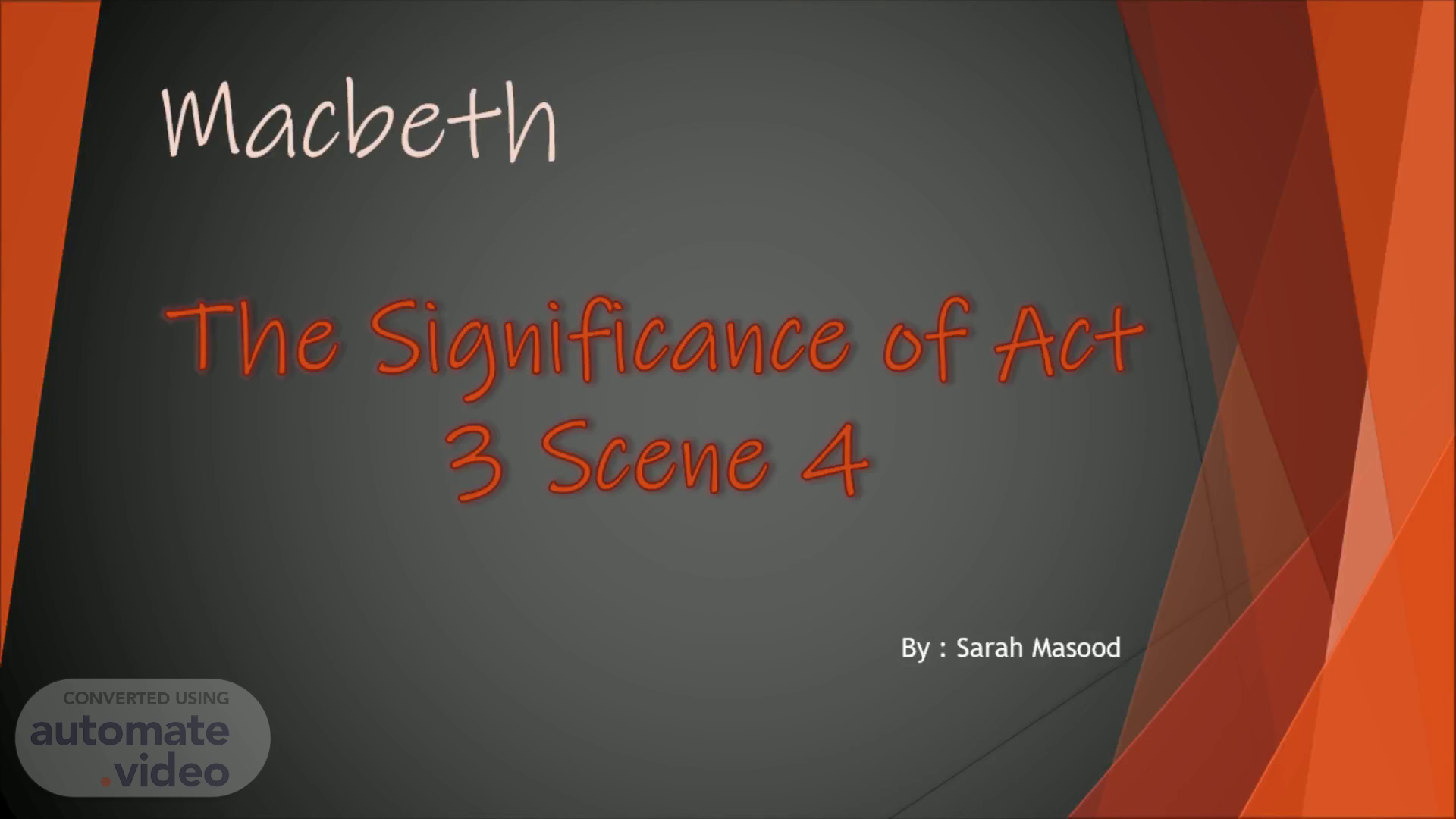Page 1 (0s)
Macbeth. By : Sarah Masood. The Significance of Act 3 Scene 4.
Page 2 (8s)
The Theme of Appearance Vs. Reality. The theme is highlighted in the scene through the actions of Macbeth and Lady Macbeth. Macbeth and his wife pretend to stay calm and collected while playing the role of noble hosts to their subjects. Macbeth tells his wife to ‘play the humble host’ in the scene. His attempt in trying to put on a facade in front of his subjects fails. Another instance where the theme is highlighted is when Lady Macbeth tries to cover up the reason for Macbeth’s peculiar behavior by calling it a momentary fit. Lady Macbeth appears to again be calm as the weight of the guilt burdens the couple..
Page 3 (50s)
The Theme of The Crime B eing T he Punishment. When the murderers inform Macbeth that Fleance is alive, Macbeth gets frustrated. His paranoia and unrest is highlighted in front of all his subjects when he starts hallucinating a ghost. Macbeth’s actions shed light upon his suffering and how he is paying for his crimes with his sanity and peace. As the scene progresses, Macbeth’s suffering is highlighted as he claims to be trapped in blood and being unable to escape it. These words reveal the fact that Macbeth can only think about murder and his past crimes and realizes that he can’t change the past which further puts his mind in a state of discomfort and paranoia. The crimes Macbeth and his wife commit demand a price to restore the balance of the world. They repay for their deeds with their sanity, sleep, love and eventually their lives..
Page 4 (1m 44s)
The Bond Between Macbeth & Lady Macbeth. The scene signifies a change in the strong bond between Macbeth and his wife. Previously Macbeth consulted his wife on all major and minor decisions in his life and termed her as his ‘partner in greatness’, this relationship however changes over the course of time. After the couple commit the murder of Duncan, their bond starts deteriorating. Macbeth, after becoming king, is able to plan an entire murder and carry it out , without letting his wife get wind of the deed. He proceeds with Banquo’s murder without consulting his wife and this sheds light on the decay of their bond. As the banquet begins, we see that Macbeth and Lady Macbeth are not seated together and they are distanced. There is an example of retrospective irony in the scene as well. While consoling her husband (who is hallucinating),Lady Macbeth claims that ‘all’s done', but in reality the couple can never part from the past and the past continues to take away their sanity and love which eventually erodes their relationship..
Page 5 (2m 50s)
The Change in Macbeth’s Personality. As the plot of the play is furthered, a significant change in Macbeth’s personality is witnessed. The way Macbeth converses with the murderers signifies how he is comfortable around such people as he himself can relate with them. It also shows Macbeth’s inability to talk with noble people as he looses all his noble traits and virtues after succumbing to evil and murdering Duncan. The language Macbeth uses to talk to the murderers places emphasis on a change of personality. He refers to the man who murdered Banquo as ‘the best o’th’ cut-throats’. His choice of word sheds light upon the fact that Macbeth is no longer the virtuous man he once was and only a figment of his old self exists. He lost his old virtuous and honorable self after making wrong and immoral decisions..
Page 6 (3m 39s)
Instances of Irony in the Scene. The use of irony is.
